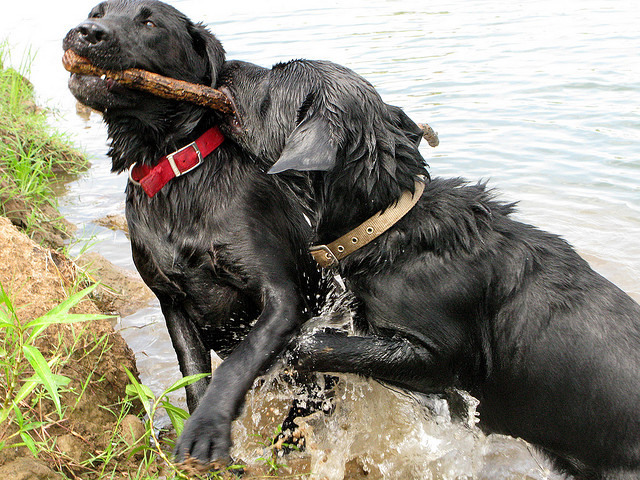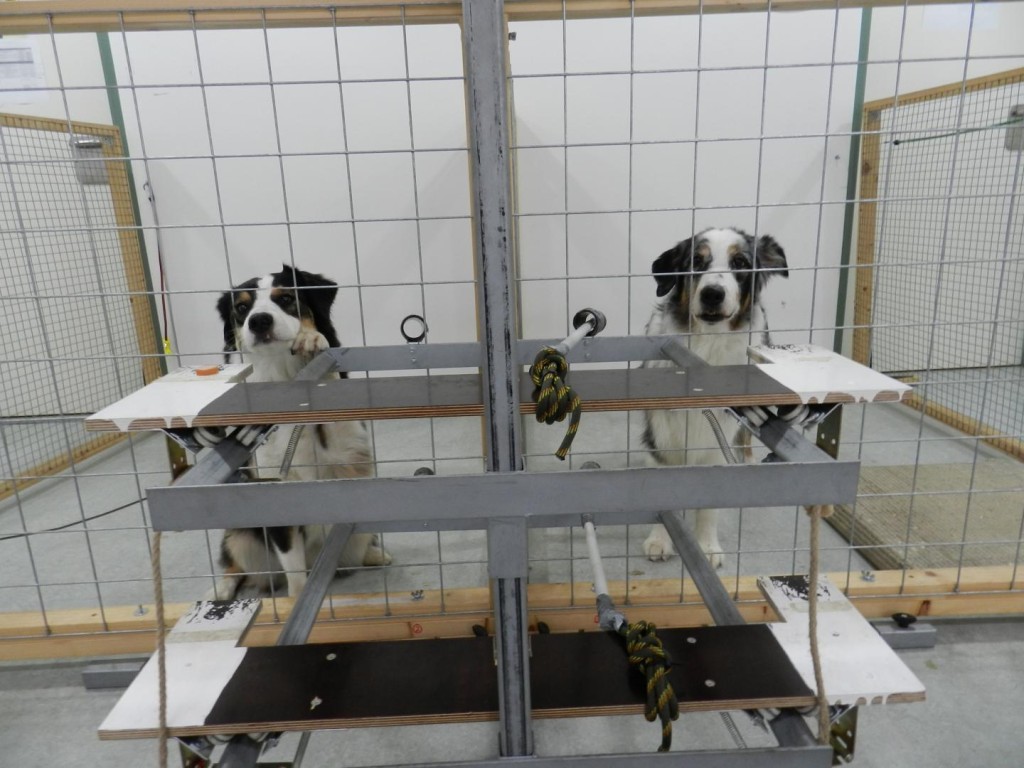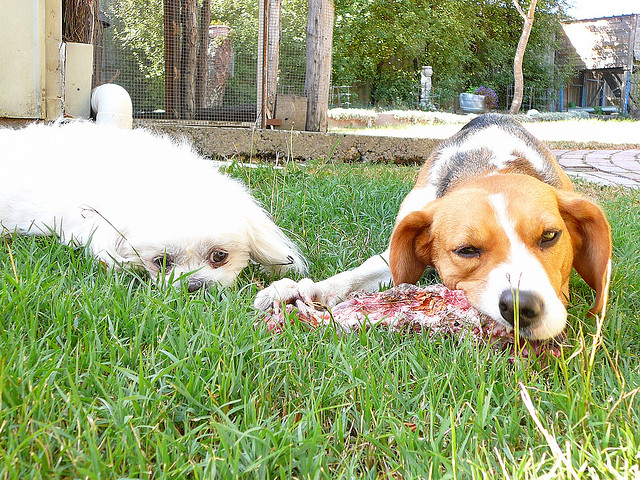Ever wondered if you were starving if your dog would share his meal with you? A new study released this month says he just might!
The study, conducted by the University of Veterinary Medicine, Vienna, Austria, was to see if dogs, like humans, have any tendency for “prosocial behavior” – meaning acts that are for the greater good or the good of other members of the group, without concern for the individual.

“Dogs and their nearest relatives, the wolves, exhibit social and cooperative behaviour, so there are grounds to assume that these animals also behave prosocially toward conspecifics. Additionally, over thousands of years of domestication, dogs were selected for special social skills,” explains study director Friederike Range.
For this reason, Range and her colleagues Mylene Quervel-Chaumette, Rachel Dale and Sarah Marshall-Pescini studied 16 dogs to test their readiness to benefit familiar versus unfamiliar partners.
The Experiment
According to their press release:
“The researchers studied the prosocial behaviour of the animals using a bar-pulling task in which the dogs had to pull trays and decide whether a second dog would receive a treat or not. In the test, the donor dogs used their mouths to pull a string to bring a tray toward a second dog. They could choose either an empty tray or a tray containing a treat on the partner’s side.”

In the bar-pulling task, the donor dogs decided whether another dog would receive a treat or not. The donor dog itself did not get the treat. The only purpose of the task was to benefit the other dog. By conducting several control tests, the researchers excluded the possibility that the dogs were simply pulling the trays for the fun of it.
The Results
They found that the donor dog (the one pulling the bar) was more likely to give the treat tray to dogs they knew versus unfamiliar dogs:
“Dogs truly behave prosocially toward other dogs. That had never been experimentally demonstrated before. What we also found was that the degree of familiarity among the dogs further influenced this behaviour. Prosocial behaviour was exhibited less frequently toward unfamiliar dogs than toward familiar ones.”
At the end of each test run, the researchers conducted another test to show that the donor dogs knew what pulling the tray meant. They allowed the donor dogs to pull on a tray to give themselves a treat, and all dogs did just that.
“This control excludes the possibility that the dogs did not pull on the tray out of fear of the unfamiliar dogs. Given the same situation, the dogs gladly gave themselves a treat,” says Range.
“We were also able to disprove the argument that the dogs pulled the string less frequently because they were distracted by the unfamiliar partner during the test. Only rarely did a donor dog interact with the unfamiliar dog,” Range explains.
The article “Familiarity affects other-regarding preferences in pet dogs”, by Mylene Quervel-Chaumette, Rachel Dale, Sarah Marshall-Pescini and Friederike Range was published in Nature’s Scientific Reports.
A Note About Resource Guarders

This study also does not take into account dogs that have resource guarding instincts. A dog who is, by nature, a resource guarder, may or may not participate in this study the same way. Or, it may pull the cord to give the dog the treat, but then try to get at it himself through the bars. It would be interesting if they would do another experiment with just guarding dogs to see if the results were different.
